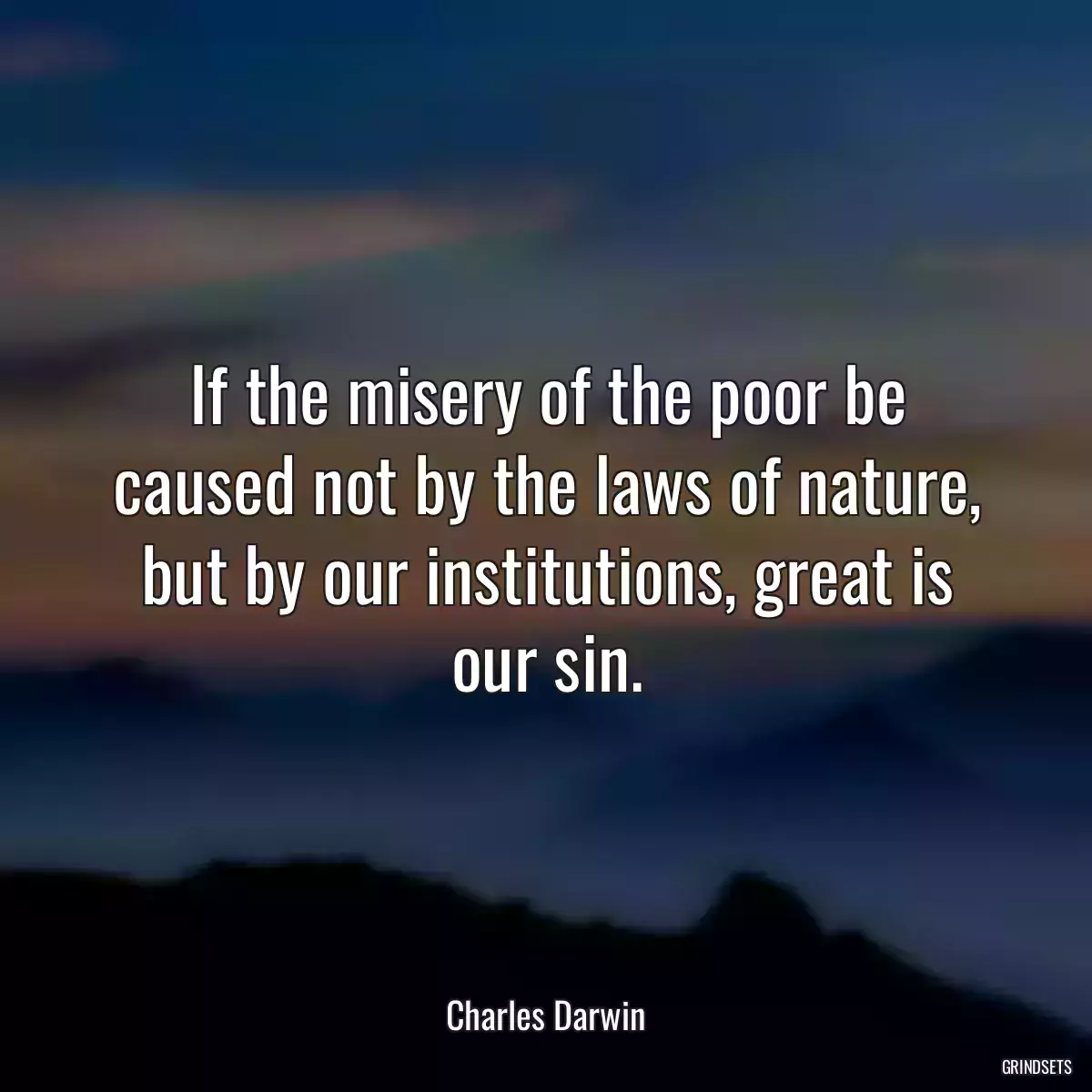
Quotes Charles Darwin - page 3
Find dozens of Charles Darwin with images to copy and share.

We must, however, acknowledge, as it seems to me, that man with all his noble qualities... still bears in his bodily frame the indelible stamp of his lowly origin.
Hereafter we shall be compelled to acknowledge that the only distinction between species and well-marked varieties is, that the latter are known, or believed to be connected at the present day by intermediate gradations whereas species were formerly thus connected.
The lower animals, on the other hand, must have their bodily structure modified in order to survive under greatly changed conditions. They must be rendered stronger, or acquire more effective teeth or claws, in order to defend themselves from new enemies; or they must be reduced in size so as to escape detection and danger. When they migrate into a colder climate they must become clothed with thicker fur, or have their constitutions altered. If they fail to be thus modified, they will cease to exist.
You may also like
The following proposition seems to me in a high degree probable—namely, that any animal whatever, endowed with well-marked social instincts, the parental and filial affections being here included, would inevitably acquire a moral sense or conscience, as soon as its intellectual powers had become as well, or nearly as well developed, as in man. For, firstly, the social instincts lead an animal to take pleasure in the society of its fellows, to feel a certain amount of sympathy with them, and to perform various services for them.
Sympathy beyond the confines of man, that is, humanity to the lower animals, seems to be one of the latest moral acquisitions.
It strikes me that all our knowledge about the structure of our Earth is very much like what an old hen would know of the hundred-acre field in a corner of which she is scratching.
In the survival of favoured individuals and races, during the constantly-recurring struggle for existence, we see a powerful and ever-acting form of selection.
“Ignorance more frequently begets confidence than does knowledge: it is those who know little, and not those who know much, who so positively assert that this or that problem will never be solved by science.”

We can allow satellites, planets, suns, universe, nay whole systems of universes, to be governed by laws, but the smallest insect, we wish to be created at once by special act.
The traveler may feel assured, he will meet with no difficulties or dangers, excepting in rare cases, nearly so bad as he beforehand anticipates. In a moral point of view, the effect ought to be, to teach him good-humored patience, freedom from selfishness, the habit of acting for himself, and of making the best of every occurrence.
If a person asked my advice, before undertaking a long voyage, my answer would depend upon his possessing a decided taste for some branch of knowledge, which could by this means be advanced. No doubt it is a high satisfaction to behold various countries and the many races of mankind, but the pleasures gained at the time do not counterbalance the evils.
It is interesting to contemplate an entangled bank clothed with many plants of many kinds with birds singing on the bushes, with various insects flitting about and with worms crawling through the damp earth and to reflect that these elaborately constructed forms so different from each other and dependent on each other and so complex a manner have all been produced by laws acting around us.
Freedom of thought is best promoted by the gradual illumination of men’s minds which follows from the advance of science.
The number of humble-bees in any district depends in a great degree on the number of field-mice, which destroy their combs and nests; and Mr. H. Newman, who has long attended to the habits of humble-bees, ... says "Near villages and small towns I have found the nests of humble-bees more numerous than elsewhere, which I attribute to the number of cats that destroy the mice." Hence it is quite credible that the presence of a feline animal in large numbers in a district might determine, through the intervention first of mice and then of bees, the frequency of certain flowers in that district!
Everything in nature is the result of fixed laws.
Free will is to mind what chance is to matter.
You may also like
![...one doubts existence of free will [because] every action determined by heredity, constitution, example of others or teaching of others.\](/fotos/ba/ba410f6ad9c09bc2268049c0147793b0.webp)
At some future period, not very distant as measured by centuries, the civilized races of man will almost certainly exterminate, and replace the savage races throughout the world.